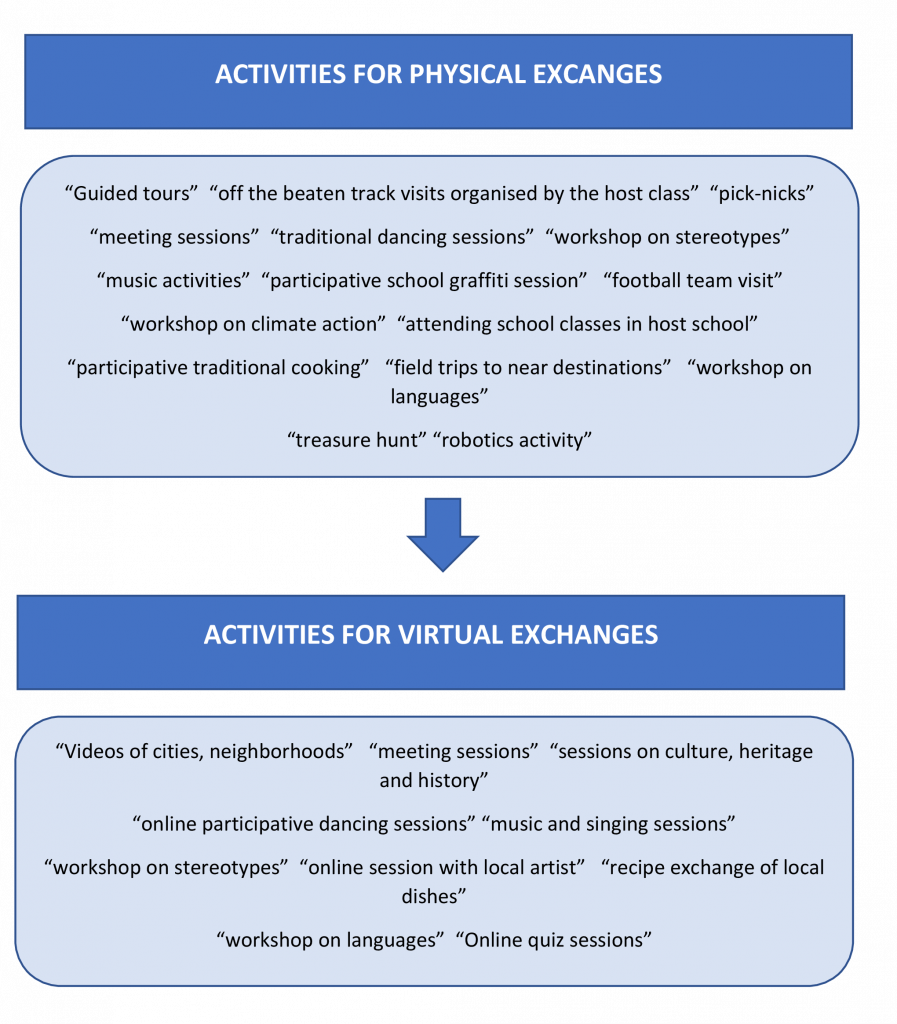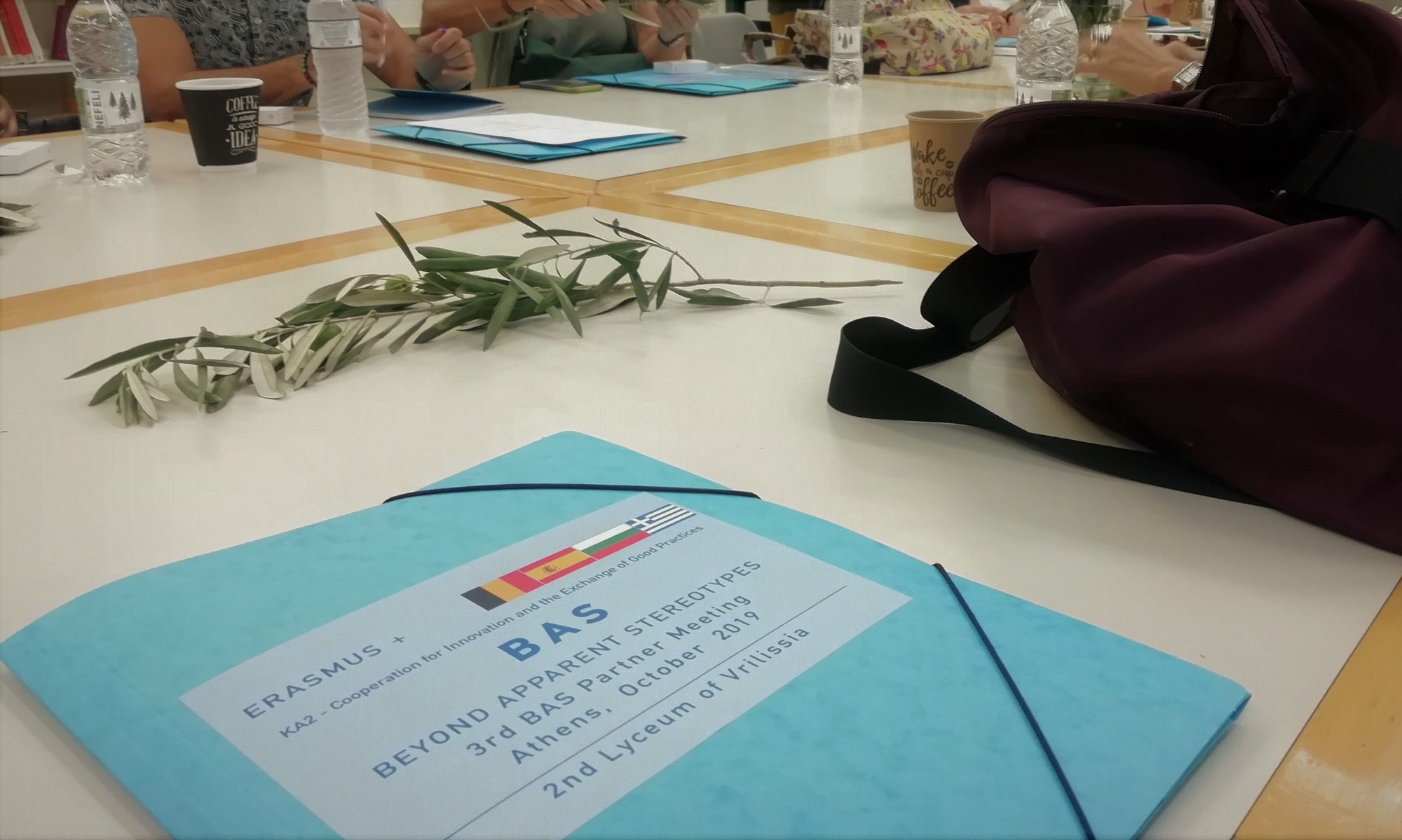Alternative of Virtual Exchanges and Activities examples
On some occasions, as happened with the BAS exchanges, physical exchanges have to be adapted into virtual exchanges due to a range of factors. In that case the content and nature of activities planned might differ from one context to the other.
To draw inspiration on your programme drafting in such cases, a pool of the activities for physical trips and their virtual exchanges alternatives, based on BAS experience, is presented below:
Figure 2: Examples of activities for physical and virtual exchanges.

Selecting Activities for your exchange: Some guidelines
Of the activities (virtual) implemented those that worked the best with the groups of outgoing and incoming students and had the biggest impact on the students included:
- The “meeting sessions” where students have the opportunity to present aspects of their everyday life, their school and their country.
- the workshops on stereotypes where students had the opportunity to discuss stereotypes about and in their respected countries.
- the workshop on languages which provide students with the opportunity to learn more about each other language while noting possible similarities in vocabulary and phrases.
- and the Online quiz sessions which can be informative and entertaining for the participating students at the same moment.
It was generally noted that students preferred the less structured activities that allowed the dialogue between them and the exchange of ideas. The sessions where students presented aspects of their culture (including youth culture, music and singing) and their everyday actions acted as a bridge for finding common places and better understanding each other and in many cases can lead to fruitful discussions. In a similar manner the “language sessions” provided students with an opportunity to meet a very important aspect of the “other culture” and find common places between the languages of hosts and guest. Finally Quiz sessions as a closing day activity provide students an entertaining way to integrate learning they have done throughout the week.
It should be noted though that in order to get the most out the activities and spark real intercultural dialogue among students (thus tackling any stereotypes) it’s important:
- to equally engage both groups (hosts, guests) in the activities. Guests should be allocated with time to present their culture and not be merely receivers of information provided by the hosts.
- to provide time for discussion and reflection during and after each activity. Dialogue is very important for the building of an intercultural understanding and the tackling of stereotypes.
